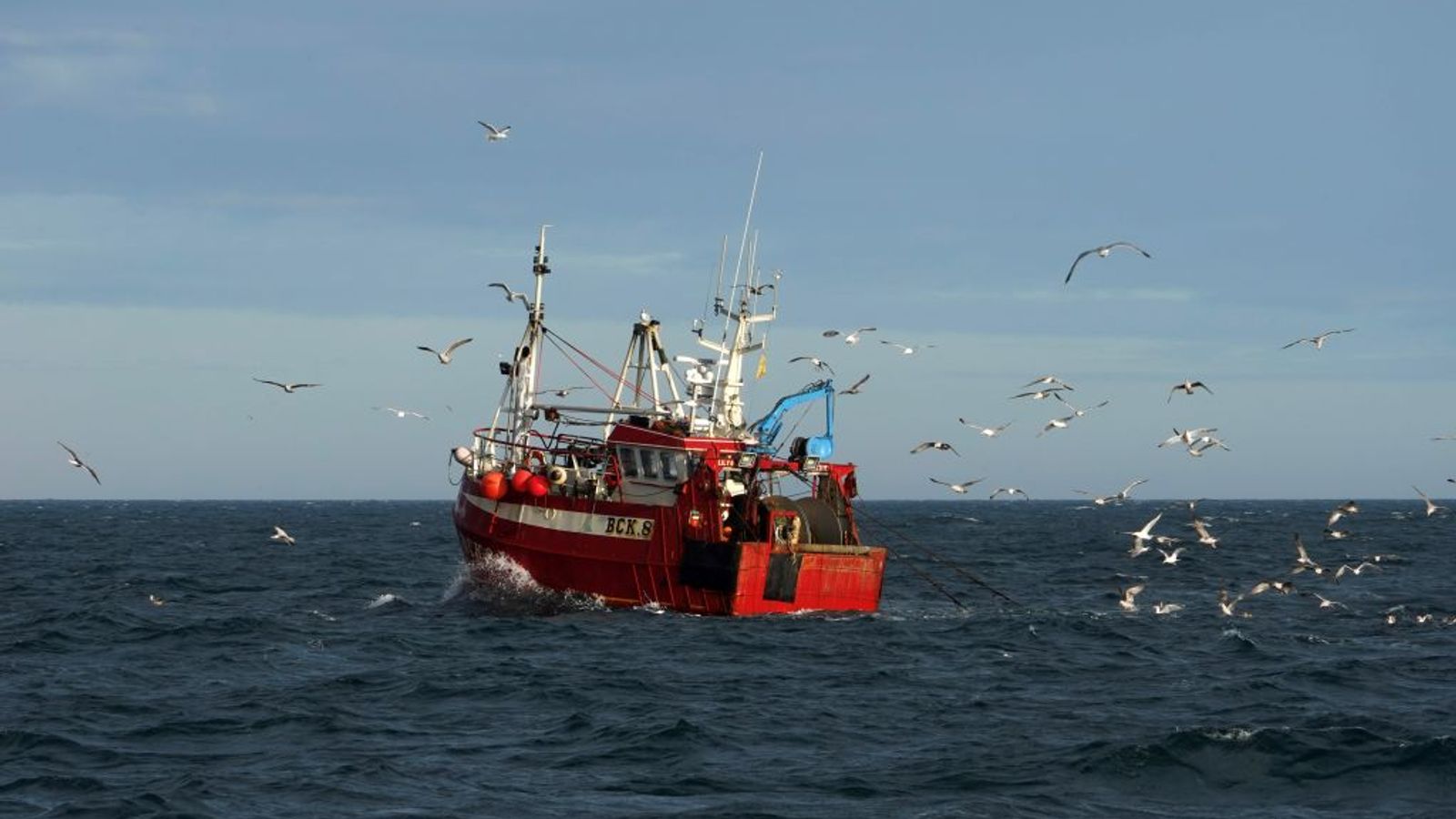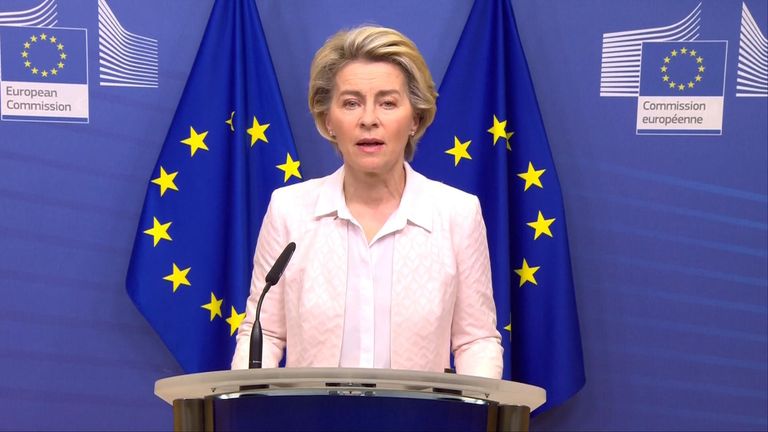Britain and the EU have made “significant progress” in the Brexit negotiations on the rights of European fleets to fish in UK waters, two EU sources have told Sky News.
They added there is now a “landing zone” which involves a phased introduction and also specific quotas for different species.
However, they said this has not been finalised.
A UK government source has told Sky News there has been “no breakthrough on fishing”, adding: “Nothing new has been achieved today.”
Sky’s Europe correspondent Adam Parsons said: “What the EU sources are saying is that fishing is no longer their big concern – they think that can be done.
“The biggest obstacle to a deal is level playing field competition rules.
“This is consistent with what we have been reporting all weekend.”
With time running out before the Brexit transition period ends at the end of the month, the UK’s chief negotiator David Frost has reconvened talks with his EU counterpart Michel Barnier in Brussels to try to resolve “significant differences”.
It came after an hour-long call between Prime Minister Boris Johnson and European Commission Ursula von der Leyen on Saturday evening.
The two leaders agreed on a final push to reach an agreement.
In a joint statement following their discussion, Mr Johnson and Ms von der Leyen said that while “progress has been achieved in many areas… significant differences remain on three critical issues: level playing field, governance and fisheries”.
British sources later warned the process could still conclude without an agreement.
A source close to the talks said: “This is the final throw of the dice.”
Environment Secretary George Eustice has earlier accused the EU of making “ludicrous” demands over future fishing rights.
He said that while the UK was prepared to offer a multi-annual deal of up to three years, the EU was insisting on access to British waters “in perpetuity”.
Subscribe to Sophy Ridge on Sunday on Apple podcasts, Google podcasts, Spotify, Spreaker
Mr Eustice told Sky News: “The EU have suggested a very modest increase that they would tolerate the UK having of the fish in its own waters, but given that we only have half of the fish in our own waters now that simply wouldn’t be possible.
“There is also the more important principle that you would not be able to give any guarantees for the long-term, otherwise you are effectively guaranteed access in perpetuity to our waters which is just not right under international law.
“We would be the only country in the entire world that could agree that, so such a suggestion really is quite ludicrous and not consistent with international law.”

